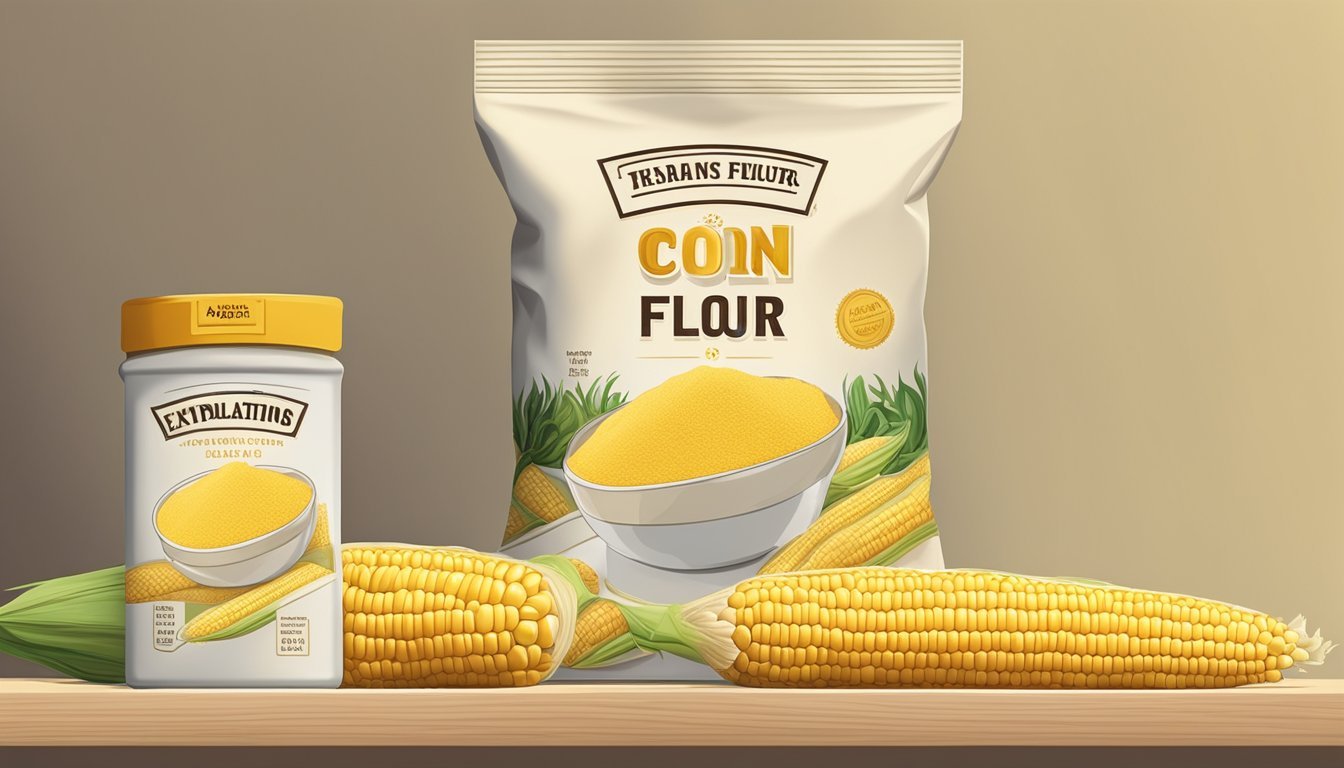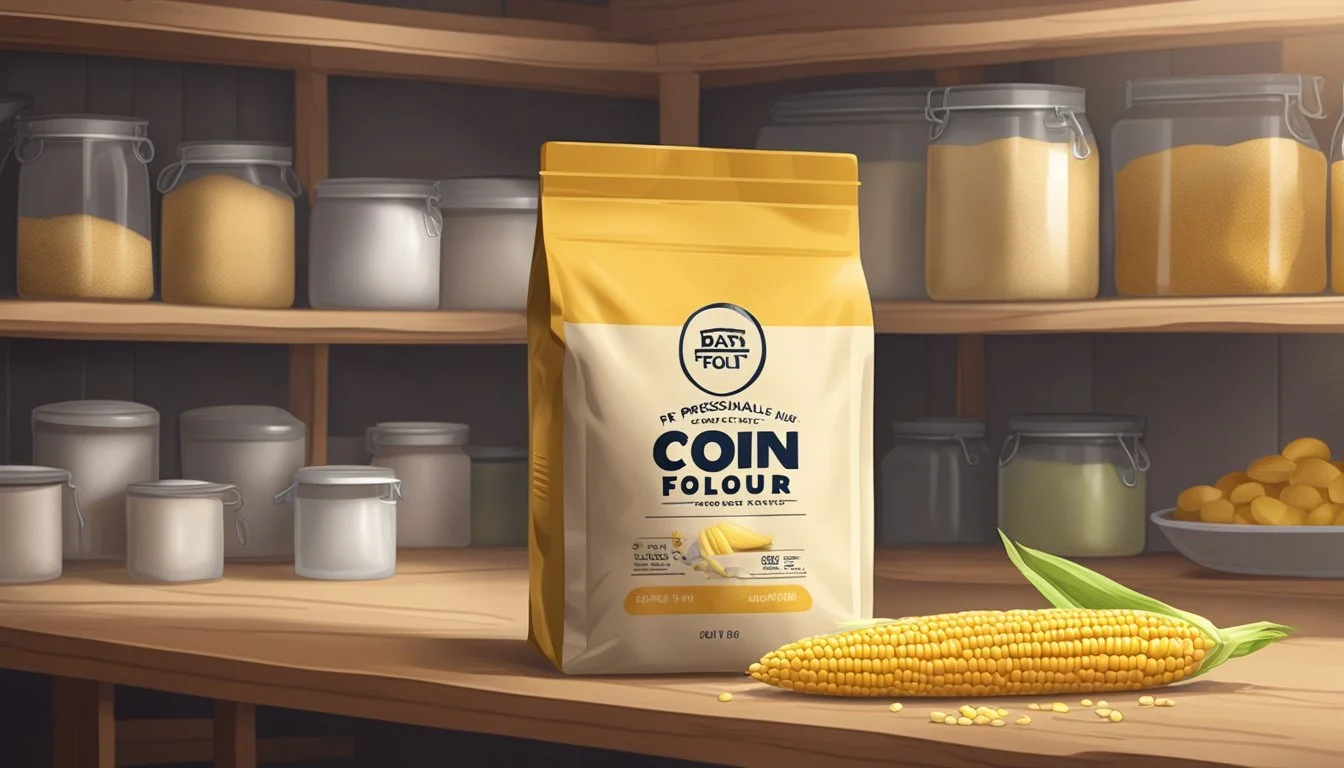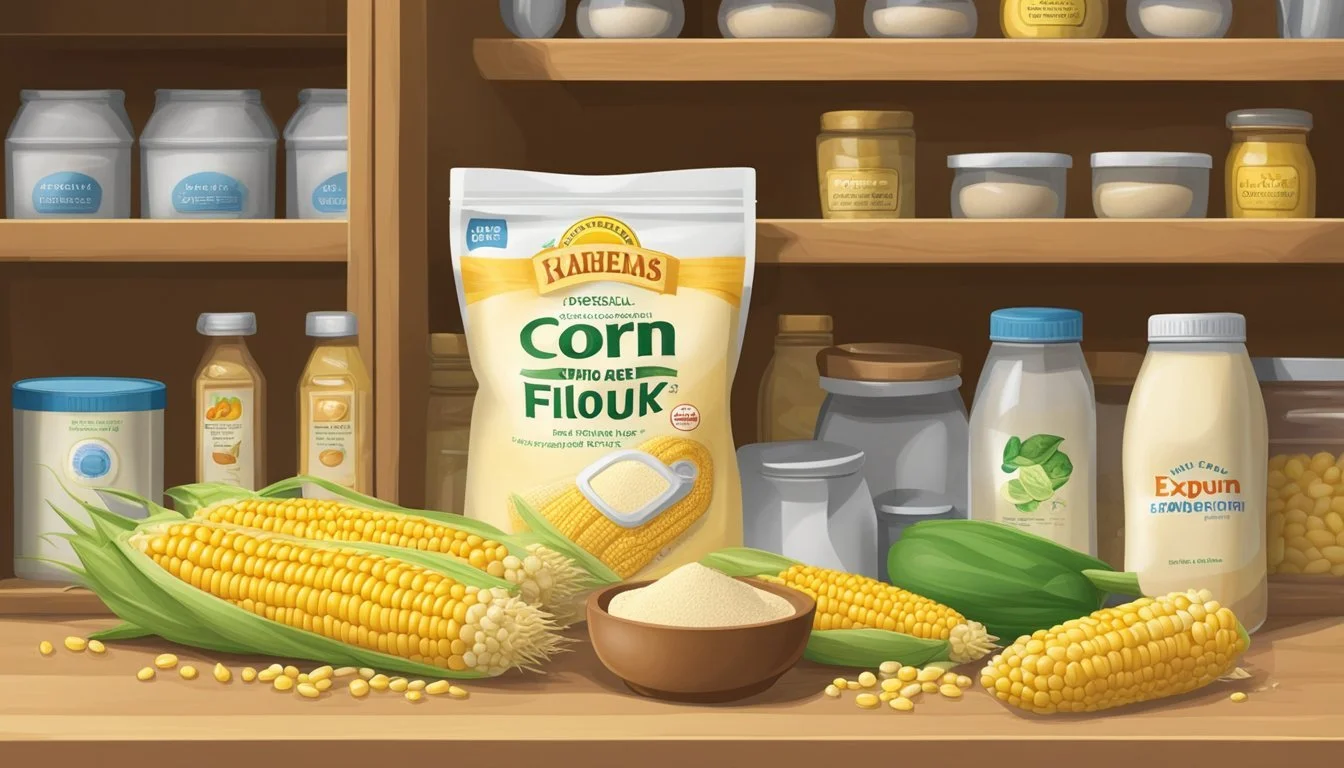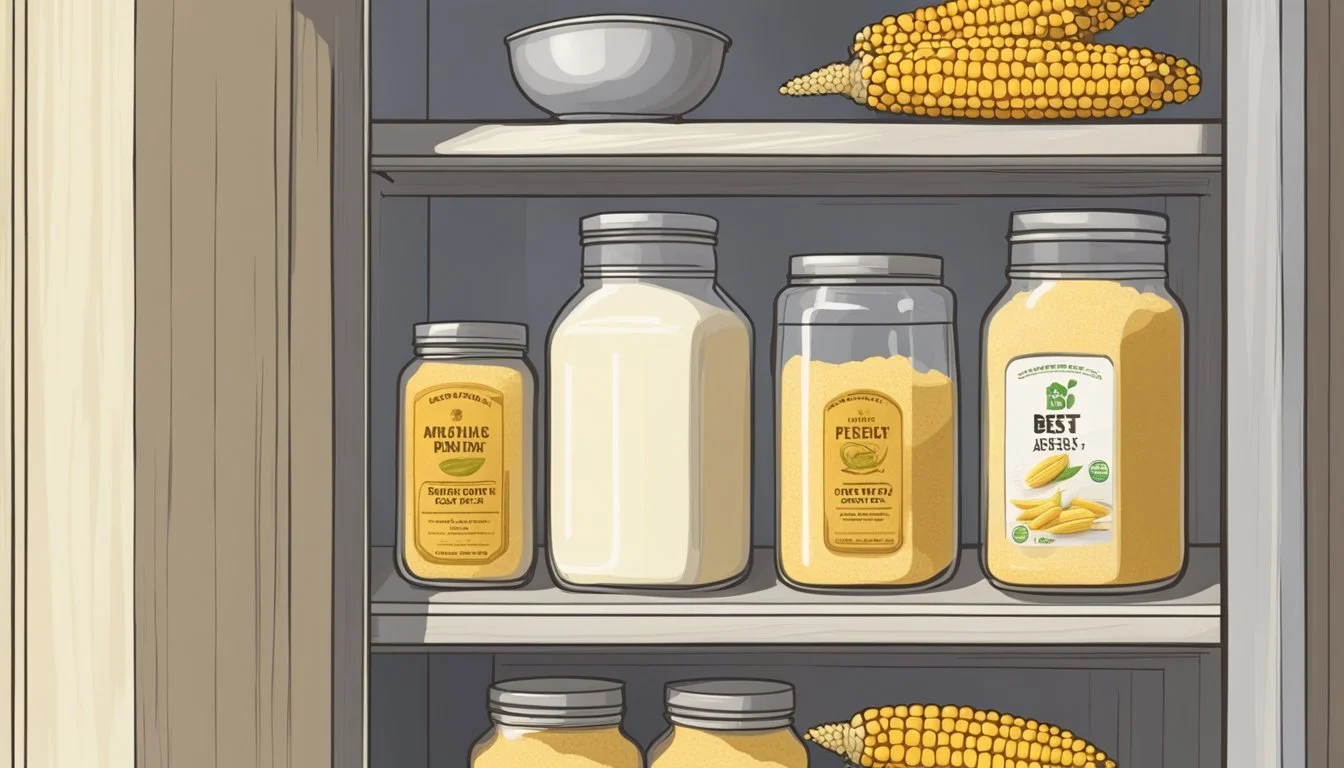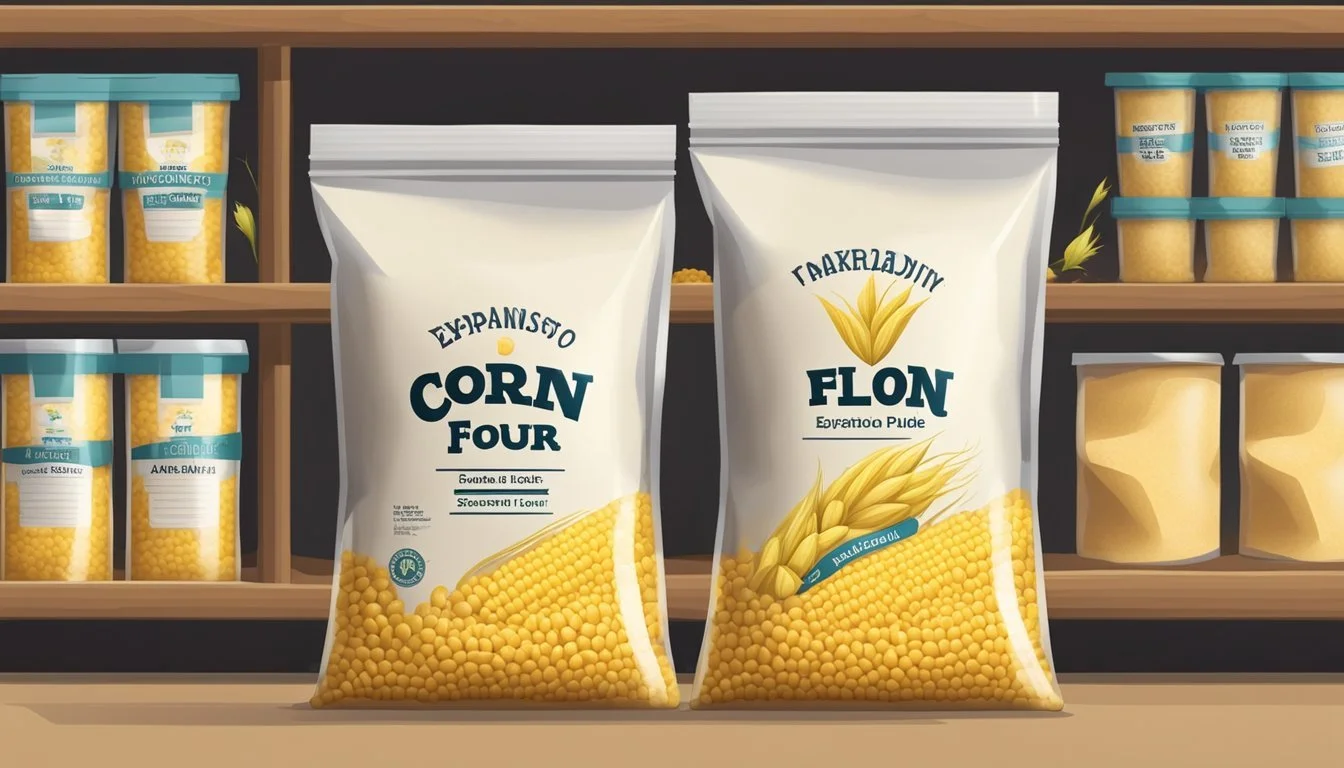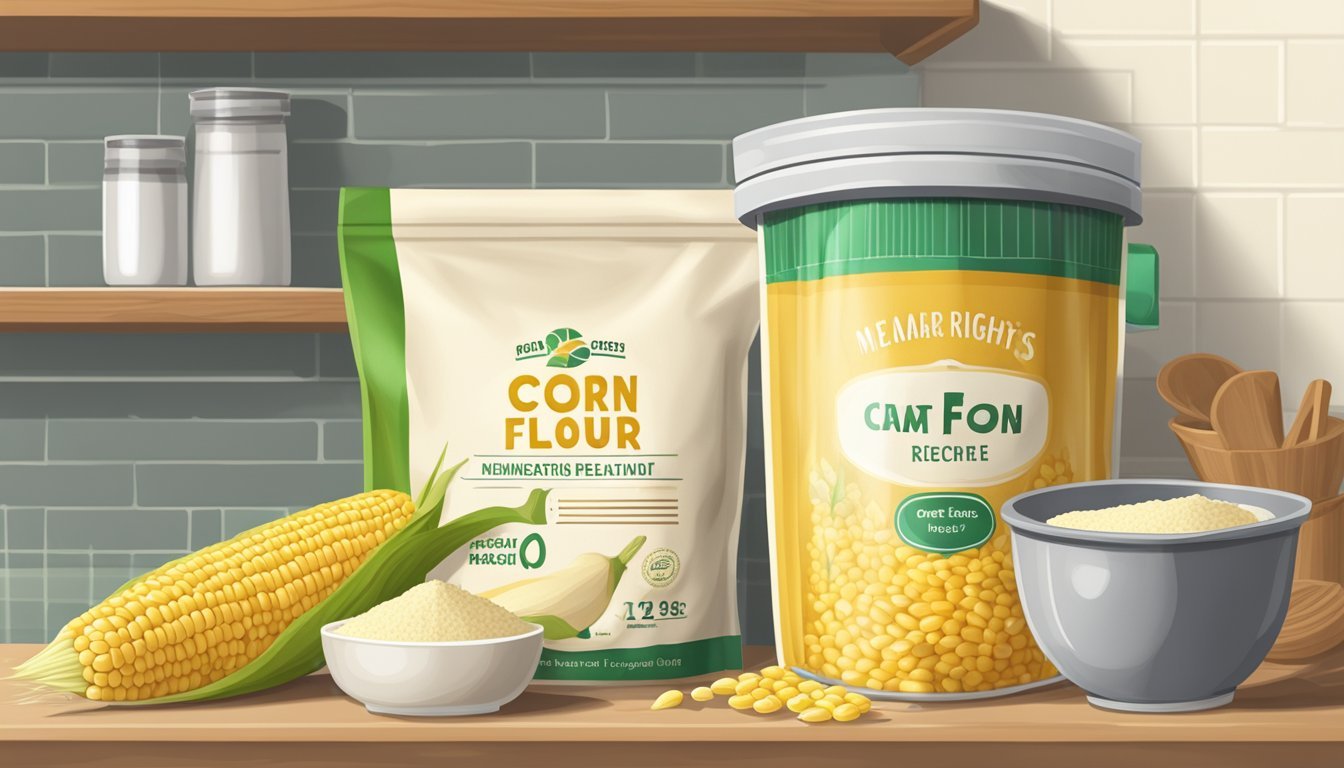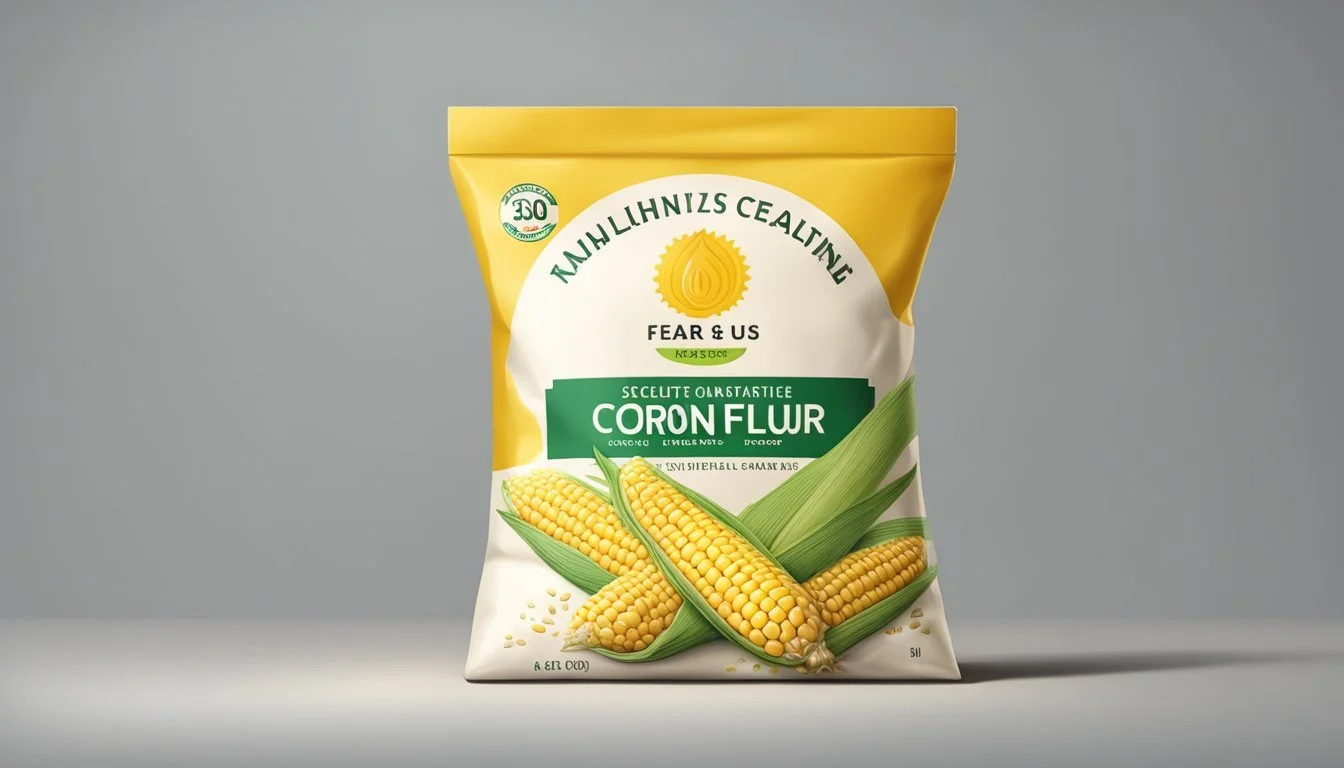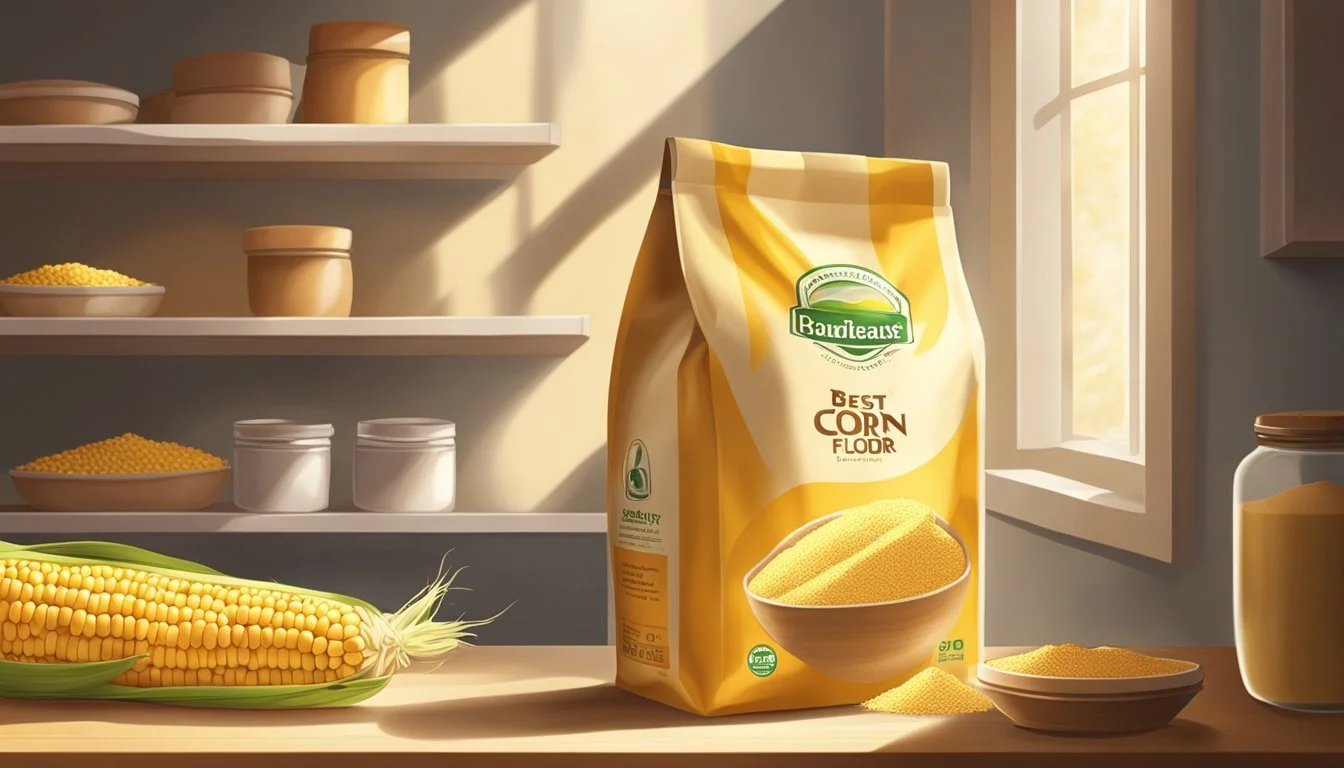How Long Does Corn Flour Last?
Shelf Life and Storage Tips
Corn flour (how long does corn flour last?), a fine powder made from grinding dried corn kernels, is an essential ingredient in many recipes, from breads to sauces. Its longevity in the kitchen pantry is influenced by several factors, including how it is stored and the ambient conditions. Generally, corn flour can retain its quality for up to 12 months when kept in a cool, dark place away from moisture and heat. After this period, while it may not necessarily be harmful to consume, its quality may start to decline, which can affect the taste and texture of the culinary creations it is used in.
The packaging of corn flour often includes a 'best before' date, which serves as a manufacturer's estimate of when the product will be at its peak quality. It is important to understand that this date is not an expiration date and consuming the flour beyond this time frame does not automatically pose a health risk, provided it has been stored correctly and shows no signs of spoilage. Hence, recognizing the signs of degradation such as an off smell, taste, or the presence of pests can assist consumers in determining if their corn flour is still fit for use.
Understanding Corn Flour
Corn flour, made from finely ground cornmeal, is a staple ingredient in many kitchens due to its versatility in baking and cooking. It differs fundamentally from other types of flour and offers a gluten-free alternative suitable for various recipes.
Difference Between Corn Flour and Other Flours
Corn flour, also known as maize flour (how long does maize flour last?), is finely ground from whole kernels of corn. It is crucial to not confuse it with cornstarch, which is a more refined product. In contrast, other flours such as all-purpose flour, white flour, and whole wheat flour (how long does whole wheat flour last?) are derived from the wheat grain. These wheat-based flours contain gluten, unlike corn flour. Buckwheat flour (how long does buckwheat flour last?) is another distinct variety, despite its name, which is not related to wheat and is also gluten-free. Each of these flours behaves differently in recipes due to variations in protein and gluten content.
Gluten-Free Nature of Corn Flour
One of the defining qualities of corn flour is its gluten-free nature. Unlike regular flour, which contains gluten—a protein complex responsible for the elasticity and chewiness in baked goods—corn flour suits those with celiac disease or gluten intolerance. This characteristic allows it to be a primary ingredient in gluten-free baking and cooking, providing a safe alternative for individuals seeking to avoid wheat-based flours.
Role of Corn Flour in Baking and Cooking
In the culinary world, corn flour has multiple applications due to its fine texture and binding qualities. It is widely used in recipes for tortillas, bread, and other baked goods where a dense and tender crumb is desired. It is also a popular thickening agent in sauces, gravies, and soups, offering a clear finish without the cloudiness associated with wheat flour. Consequently, corn flour is an essential component in many kitchens, pivotal for both traditional dishes and gluten-free alternatives.
Shelf Life of Corn Flour
Corn flour is a staple ingredient in many kitchens, and its longevity is influenced by storage conditions and adherence to date markings. Properly stored corn flour maintains its quality for a considerable period, but users should be aware of indicators of expiration and signs of spoilage.
Typical Expiration Date Indicators
Corn flour packaging generally includes either a best-by date or a use-by date, which suggests the timeline for optimum freshness. Often, corn flour remains usable for:
9-12 months past its best-by date.
Beyond this period, its quality might decline, even if it is not immediately harmful to consume.
Signs of Spoilage in Corn Flour
Corn flour can spoil, exhibiting certain indicators that it should no longer be consumed:
Odor: A rancid smell indicates that the flour has gone bad.
Appearance: Discoloration or the presence of mold suggests spoilage.
Texture: Clumps may form in the presence of moisture, and while they can be broken up, they often hint at diminished freshness.
If any signs of spoilage are detected, it is advisable to discard the corn flour to avoid consuming potential mycotoxins produced by mold.
Factors Affecting Longevity
Several external factors contribute to the lifespan of corn flour:
Storage Environment: A cool, dark place extends its shelf life.
Container: An airtight container keeps out moisture and contaminants.
Handling: Limit exposure to air and humidity by sealing the flour promptly after use.
To maintain its freshness and prevent rancid flour, users should control these factors as much as possible.
Proper Storage Solutions
Ensuring corn flour maintains its quality over time hinges on implementing effective storage solutions. This section provides specific guidelines for pantry, refrigeration, and freezer storage of corn flour.
Recommendations for Pantry Storage
For optimal shelf life in the pantry, corn flour should be kept in an airtight container—glass or plastic—to protect it from air and heat. A cool, dark place away from direct sunlight and fluctuating temperatures will help preserve its freshness. Examples of suitable storage vessels include:
Resealable plastic bags: Ensure they are sealed tightly after each use.
Glass jars with tight-fitting lids: Protect against moisture and pests.
Refrigeration: Yes or No?
Refrigeration is generally not necessary for corn flour if pantry conditions are cool and stable. However, for climates where ambient temperatures are consistently high, placing the airtight container in the fridge can help extend the flour's freshness. It is crucial to prevent moisture condensation inside the container, as this can lead to spoilage.
Freezing Corn Flour for Extended Freshness
For long-term preservation, freezing corn flour is an effective technique. Store the flour in a freezer-safe airtight container or plastic bag to prevent freezer burn and absorption of odors. Thawing isn't required—corn flour can be used directly from the freezer for most recipes.
Health and Safety Considerations
When dealing with corn flour, one must prioritize health and safety. Utilizing spoiled corn flour can lead to health risks including foodborne illness. Proper storage methods can effectively prevent contamination and pest infestations, ensuring that the corn flour maintains its quality and safety for consumption.
Risks of Using Spoiled Corn Flour
Consuming corn flour that has gone bad can present several health risks. It may contain mold which can cause respiratory issues and other illnesses when ingested. Eating spoiled corn flour might also lead to an upset stomach, as the product can develop harmful bacteria over time. One should always be cautious of unusual odors, changes in color, or the presence of mold, as these are indicators that the corn flour has likely spoiled and should not be used.
Preventing Contamination and Pest Infestation
To maintain the quality of corn flour and safeguard against health hazards:
Store corn flour in an airtight container to prevent exposure to air and humidity.
Keep the storage area cool and dark to extend the shelf life and prevent the growth of bacteria and mold.
Regularly check for the presence of weevils or other pests, which can contaminate the flour. If pests are detected, the corn flour should be discarded immediately to prevent the spread to other food items.
By adhering to these practices, one can ensure that corn flour is kept in an optimal state for safety and consumption.
Maximizing Corn Flour Effectiveness
To ensure corn flour maintains its peak effectiveness, both in flavor and functionality, proper storage and usage methods are critical. These best practices help retain corn flour's qualities for optimal results in various recipes.
Tips for Maintaining Flavor and Texture
Proper storage is key to maintaining the flavor and texture of corn flour. It should be kept in an airtight container to prevent moisture and pests from compromising its quality. Furthermore, storage in a cool, dark place—like a pantry—is ideal to preserve its flavor and prevent rancidity. Humidity can impact taste and texture, so a consistent, dry environment ensures longer shelf life and effectiveness when used as a thickener in sauces and gravies.
Do:
Store in an airtight container (e.g., resealable plastic bag, glass jar).
Keep in a cool, dark place such as a pantry.
Don't:
Leave in a humid environment.
Expose to direct sunlight or fluctuating temperatures.
Usage in Recipes for Optimal Results
Corn flour's effectiveness in recipes hinges on understanding its role. As a thickener, it is excellent for sauces and gravies, offering a smooth consistency without a grainy texture. When used in baking, mixing corn flour with baking powder can enhance leavening for lighter and fluffier baked goods. For the best results, one should integrate it following recipe ratios to ensure flavor and structure are not compromised.
Thickening Agent:
Use corn flour as a substitute for wheat flour to achieve a desirable thick consistency in gluten-free recipes.
Whisk it into liquids to prevent clumping and ensure a homogeneous texture.
In Baking:
Combine equally with baking powder to aid in the rising process.
Introduce corn flour into doughs or batters to contribute to a tender crumb in cakes and bread.
Corn Flour FAQs
In this section, readers will find answers to frequently asked questions surrounding the shelf life and storage of corn flour, providing clear and factual information.
Dealing with Common Corn Flour Queries
How long does corn flour last?
Corn flour typically lasts for up to 12 months when stored properly. It should be kept in an airtight container in a cool, dark place to maintain its freshness.
What are the signs of spoilage in corn flour?
Spoilage signs include a noticeable change in color, an off smell, and the presence of moisture or pests within the container. If any of these signs are evident, the corn flour should not be used.
Can corn flour still be used after its expiration date?
Corn flour may last 9-12 months beyond its use-by or best-by date, but one should always check for spoilage signs before use.
Is refrigeration necessary for extending corn flour's shelf life?
Refrigeration is not typically required to extend the shelf life of corn flour if it is stored in an airtight container and placed in a cool, dark area.
Can you freeze corn flour to increase its shelf life?
Freezing can further extend the shelf life of corn flour, retaining its quality longer, as long as it is stored in a moisture-free, sealed container or freezer bag.
Readers seeking specific information regarding the storage, lifespan, and usage of corn flour should find the provided facts sufficiently addressing common concerns, allowing for better kitchen practices and food safety.
Summary and Best Practices
When it comes to corn flour, its longevity hinges on storage methods that maintain its freshness and quality over time. Careful adherence to best practices is crucial to ensure that corn flour remains suitable for use.
Key Takeaways on Corn Flour Preservation
Shelf Life: Generally, corn flour has a shelf life of 9 to 12 months when stored under optimal conditions. After this period, the quality may begin to degrade, even though it may still be safe to consume.
Storage: To retain freshness, store corn flour in a cool, dark place, away from moisture and heat. This mitigates the risk of spoilage and extends the flour's usability.
Quality Preservation:
Keep corn flour in an airtight container to protect it from pests and moisture, which can lead to mold formation and spoilage.
Regular checks for odors, clumps, or changes in texture help determine the flour’s quality over time.
Best Practices:
Label containers with the purchase or opening date to track how long the corn flour has been stored.
Though refrigeration can prolong its shelf life, it’s typically not necessary unless the storage conditions are prone to high temperatures or humidity.

